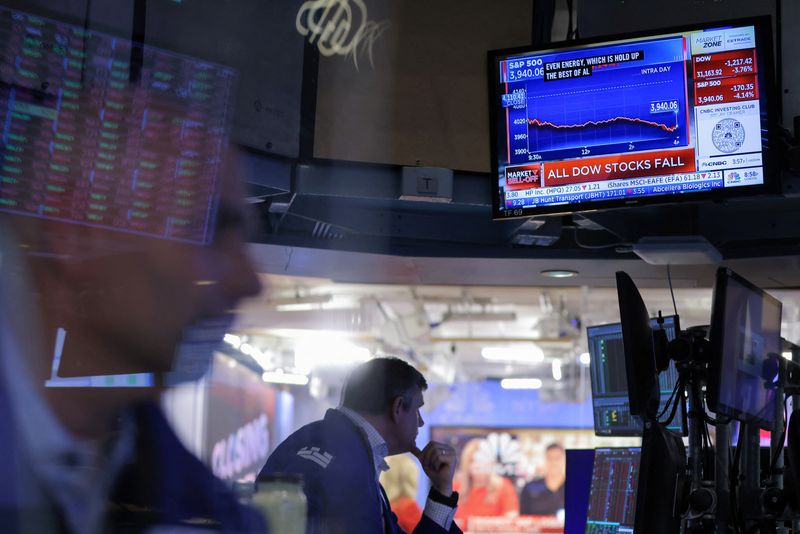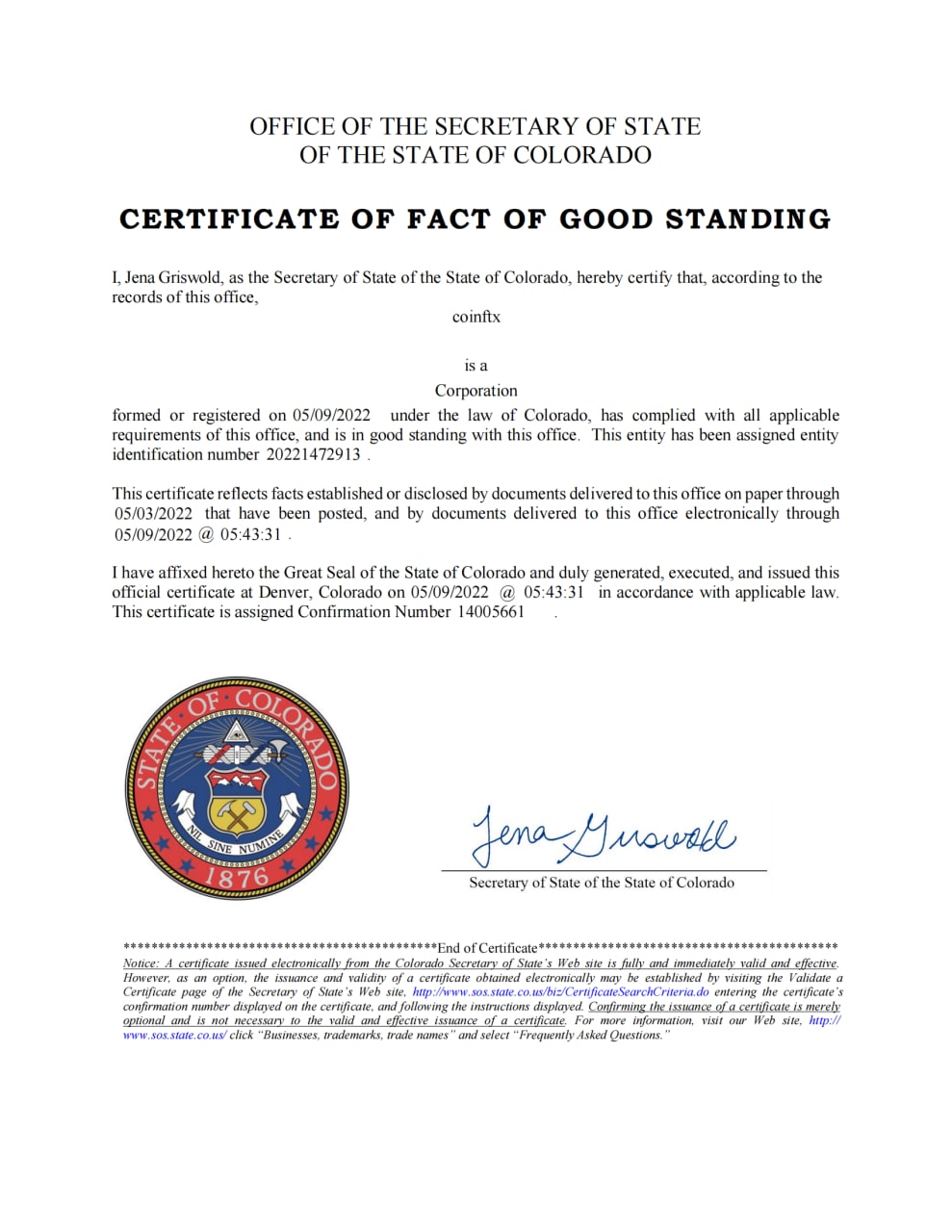The IDCIex Global user agreement is the relevant rights and obligations stipulated by the user and the IDCIex Global platform for various services, and is contractual.
By registering and using this website, the user means that he accepts and agrees to all the conditions and terms of the "User Agreement". Both IDCIex Global and the user have carefully read all the terms in this "User Agreement" and the legal statements and operations issued by IDCIex Global The content of the rules, this agreement and the aforementioned terms of service, legal statements and operating rules have been known, understood and accepted, and agreed to use them as the basis for determining the rights and obligations of both parties.
The IDCIex Global "legal statement" is an essential part of this agreement. When the user accepts this agreement, it shall be deemed to have accepted the entire content of the IDCIex Global "legal statement". The content of this agreement includes the body of this agreement and the published or Various rules, statements, and instructions that may be released in the future. All rules, statements, and instructions are an integral part of the agreement and have the same legal effect as the body of the agreement.
1. User service
1.1 IDCIex Global provides online trading platform services for users to conduct encrypted digital currency transactions through the platform. IDCIex Global does not participate in the buying and selling of any digital currency itself as a buyer or seller.
1.2 Users have the right to browse real-time digital currency market quotations and transaction information on IDCIex Global, and have the right to submit digital currency transaction instructions and complete digital currency transactions through the IDCIex Global platform.
1.3 Users have the right to view their information under the platform member account in IDCIex Global, and have the right to use the functions provided by IDCIex Global to operate.
1.4 Users have the right to participate in website activities organized by the platform in accordance with the activity rules published by IDCIex Global.
1.5 Users should abide by laws, regulations, regulatory documents and policy requirements, ensure the legitimacy of all funds and digital currency sources in the account, and must not engage in illegal or other damage to the platform or the third party in IDCIex Global or use IDCIex Global services. The activities of tripartite rights, such as sending or receiving any information that violates laws, regulations, public order and good customs, or infringes on the rights and interests of others, sending or receiving pyramid schemes or other harmful information or speech, using or forging IDCIex Global electronics without the authorization of IDCIex Global Email header information, etc.
1.6 Users should abide by laws and regulations, and should properly use and keep their IDCIex Global platform account and password, fund transaction password, mobile phone number bound to the registration time, and the security of the mobile phone verification code received by the mobile phone. The user is fully responsible for any operations and consequences performed using his platform account and password, capital password, and mobile phone verification code. When the user discovers that the IDCIex Global platform account, password or fund password, verification code is used by a third party without its authorization, or there are other account security issues, the IDCIex Global platform will be notified immediately and effectively, and the platform will be required to suspend the service IDCIex Global of the platform account. The IDCIex Global platform has the right to take action on the user’s request within a reasonable time, but it does not assume any responsibility for the losses that the user has suffered before the IDCIex Global platform takes action. The user shall not give, borrow, rent, transfer or otherwise dispose of the IDCIex Global platform account to others without the consent of the IDCIex Global platform.
1.7 The user shall abide by the user agreement and other terms of service and operating rules published and updated by the IDCIex Global platform from time to time.
Second, the rights and obligations of users
2.1 The user has the right to accept the digital currency trading platform services provided by IDCIex Global in accordance with this agreement.
2.2 The user has the right to terminate the use of IDCIex Global platform services at any time.
2.3 Users have the right to withdraw the balance of funds in IDCIex Global at any time, but they need to pay the corresponding withdrawal fees to the IDCIex Global platform.
2.4 The user is responsible for the authenticity, validity and security of the personal information provided during registration.
2.5 When users conduct digital currency transactions on the IDCIex Global platform, they must not maliciously interfere with the normal conduct of digital currency transactions and disrupt the order of transactions.
2.6 Users must not interfere with the normal operation of the IDCIex Global platform or interfere with other users' use of the IDCIex Global platform services by any technical means or other means.
2.7 If users have litigation with other users due to online transactions, they must not request the IDCIex Global platform to provide relevant data through judicial or administrative channels.
2.8 Users shall not maliciously slander the reputation of the IDCIex Global platform by fabricating facts or other means.
Third, the rights and obligations of the IDCIex Global platform
3.1 If the user does not have the registration qualifications stipulated in this agreement, the IDCIex Global platform has the right to refuse the user to register, and the registered user has the right to cancel his IDCIex Global platform member account. The IDCIex Global platform suffers losses due to this. The right to claim compensation from the aforementioned users or their legal representatives. At the same time, the IDCIex Global platform reserves the right to decide whether to accept user registration under any other circumstances.
When the IDCIex Global platform finds that the account user is not the initial registrant of the account, it has the right to suspend the use of the account.
3.2 When the IDCIex Global platform reasonably suspects that the information provided by the user is incorrect, false, invalid or incomplete through technical testing, manual sampling and other testing methods, it has the right to notify the user to correct, update the information or suspend, and terminate the provision of the IDCIex Global platform. service.
3.3 The IDCIex Global platform has the right to correct any information displayed on the IDCIex Global platform when there are obvious errors.
The platform reserves the right to modify, suspend or terminate the IDCIex Global platform services at any time. The IDCIex Global platform exercises the right to modify or suspend the services without prior notice to the user. If the IDCIex Global platform terminates one or more services of the IDCIex Global platform, The termination will take effect on the day when the IDCIex Global platform publishes the termination announcement on the website.
3.4 The IDCIex Global platform shall adopt necessary technical means and management measures to ensure the normal operation of the IDCIex Global platform, and provide necessary and reliable trading environment and transaction services to maintain the order of digital currency transactions.
3.5 If the user has not used the IDCIex Global platform member account and password to log in to the IDCIex Global platform for three consecutive years, the IDCIex Global platform has the right to cancel the user's IDCIex Global platform account. After the account is cancelled, the IDCIex Global platform has the right to open the corresponding member name to other users for registration.
3.7 The IDCIex Global platform guarantees the safety of users' RMB funds and digital currency custody by strengthening technical investment and improving security precautions. It is obliged to notify users in advance when there are foreseeable security risks in user funds.
3.8 The IDCIex Global platform has the right to delete all kinds of content and information on the IDCIex Global platform website that do not comply with national laws and regulations, regulatory documents or reports stipulated by the IDCIex Global platform website. The IDCIex Global platform does not need to notify in advance to exercise this right user.
Four, special statement
To the extent permitted by law, under any circumstances, the IDCIex Global platform is protected against maintenance of information network equipment, information network connection failures, computer, communications or other system failures, power failures, strikes, labor disputes, riots, and uprisings. , Riots, insufficient productivity or production data, fires, floods, storms, explosions, wars, government actions, orders from judicial administrative organs, other force majeure or third-party inactions caused by inability to service or delayed services, and users suffered as a result The loss is not liable.
Five, customer service
The IDCIex Global platform has established a professional customer service team and established a complete customer service system to ensure the smooth flow of user questions and complaint channels in terms of technology, personnel and systems, and provide users with timely troubleshooting and complaint feedback.
Six, intellectual property
6.1 All intellectual achievements contained in the IDCIex Global platform include but are not limited to website logos, databases, website design, text and graphics, software, photos, videos, music, sounds and the foregoing combinations, software compilation, related source codes and software applications The intellectual property rights of programs and scripts are owned by the IDCIex Global platform. Users shall not copy, change, copy, send or use any of the aforementioned materials or content for commercial purposes.
6.2 All rights (including but not limited to goodwill and trademarks, logos) contained in the name of the IDCIex Global platform belong to the IDCIex Global platform.
6.3 The user's acceptance of this agreement shall be deemed as the user's initiative to have the copyright of any form of information published on the IDCIex Global platform, including but not limited to: reproduction rights, distribution rights, rental rights, exhibition rights, performance rights, projection rights, broadcasting rights Rights, information network communication rights, filming rights, adaptation rights, translation rights, compilation rights and other transferable rights attributable to the copyright owner are exclusively transferred to the IDCIex Global platform for free, and the IDCIex Global platform has the right to infringe on any subject Individually file a lawsuit and obtain full compensation. This agreement is a written agreement stipulated in Article 25 of the "United Nations Copyright Law", and its validity is applicable to the content of any copyright law-protected works published by users on the IDCIex Global platform, regardless of the formation of the content Before signing this agreement or after signing this agreement.
6.4 Users shall not illegally use the IDCIex Global platform or the intellectual property rights of others when using the IDCIex Global platform services.
Seven, privacy policy
7.1 When a user registers an IDCIex Global platform account or payment account, the user provides personal registration information according to the requirements of the IDCIex Global platform, including but not limited to identity card information.
7.2 When the user uses the IDCIex Global platform service or visits the IDCIex Global platform webpage, the IDCIex Global platform automatically receives and records the server value on the user’s browser, including but not limited to data such as IP address and user requirements for access Web records of.
7.3 Relevant data collected by the IDCIex Global platform of users' transactions on the IDCIex Global platform, including but not limited to records of bids and purchases.
7.4 The personal information of other users obtained by the IDCIex Global platform through legal means.
7.5 The IDCIex Global platform will not sell or lend the user's personal information to anyone unless the user's permission is obtained in advance. The IDCIex Global platform does not allow any third party to collect, edit, sell or disseminate the user's personal information by any means.
7.6 The IDCIex Global platform keeps the obtained customer identity data and transaction information confidential, and must not provide customer identity data and transaction information to any unit or individual, unless otherwise provided by laws and regulations.
Eight, anti-money laundering
8.1 The IDCIex Global platform complies with and implements the provisions of the "Anti-Money Laundering Law of the People's Republic of China" to identify users, maintain a system for customer identity data and transaction history records, as well as a system for large and suspicious transaction reports.
8.2 When users register and modify their real-name information, they should provide and upload necessary evidence such as a copy of their ID card. The IDCIex Global platform will identify and compare the ID card information provided by the user. The IDCIex Global platform has reasonable grounds to suspect that when a user registers with a false identity, it has the right to refuse to register or cancel the registered account.
8.3 The IDCIex Global platform refers to the provisions of the “Measures for the Administration of Large-Value Transactions and Suspicious Transaction Reports of Financial Institutions” to keep historical records of large-value transactions and transactions suspected of money laundering. When regulatory agencies require records of large-value transactions and suspicious transactions, Provide to regulatory agencies.
8.4 The IDCIex Global platform saves user identity information, large-value transactions, and historical records of suspicious transactions, assists in accordance with the law, cooperates with judicial and administrative law enforcement agencies in combating money laundering activities, and assists judicial agencies, customs, taxation and other departments to inquire in accordance with laws and regulations , Freezing and deducting customer deposits.
8.5 According to the national anti-money laundering policy and the protection of customer assets, the name of the remitter must be the same as the real-name certified name.
Nine. Liability for breach of contract
9.1 The violation of the IDCIex Global platform or the user of this agreement constitutes a breach of contract, and the breaching party shall be liable for breach of contract to the observant party.
9.2 If the IDCIex Global platform causes losses to the IDCIex Global platform due to untrue, incomplete or inaccurate information provided by the user, the IDCIex Global platform has the right to request the user to compensate the IDCIex Global platform for losses.
9.3 If a user engages in illegal activities on the IDCIex Global platform or using the IDCIex Global platform services due to violation of laws and regulations or the provisions of this agreement, the IDCIex Global platform has the right to immediately terminate the continued provision of IDCIex Global platform services to them, and cancel them Account and demand compensation for the losses caused to the IDCIex Global platform.
9.4 If User interferes with the operation of IDCIex Global Platform by technical means or interferes with the use of IDCIex Global Platform by other Users, IDCIex Global shall have the right to immediately cancel the account of the User on IDCIex Global Platform and claim compensation for the losses caused to IDCIex Global.
9.5 If users maliciously slander the reputation of the IDCIex Global platform by fabricating facts, etc., the IDCIex Global platform has the right to request the user to publicly apologize to the IDCIex Global platform, compensate for the losses caused to the IDCIex Global platform, and have the right to terminate it Provide IDCIex Global platform services.
Ten. Entry into force and interpretation of the agreement
This agreement takes effect when the user clicks on the IDCIex Global platform registration page to agree to register and complete the registration process, and obtains the IDCIex Global platform account and password, and is binding on the IDCIex Global platform and users.
Eleven. Modification and termination of the agreement
11.1 Changes to the agreement: the IDCIex Global platform has the right to change the content of this agreement or other terms of service and operating rules published by the IDCIex Global platform at any time. When the change is made, the IDCIex Global platform will publish an announcement in a prominent place on the IDCIex Global platform. , The change takes effect when the announcement is released. If the user continues to use the services provided by the IDCIex Global platform, it is deemed that the user agrees to the content changes. If the user does not agree with the content after the change, the user has the right to cancel the IDCIex Global platform account and stop Use IDCIex Global platform services.
11.2 Termination of the agreement
11.2.1 The IDCIex Global platform has the right to cancel the user's IDCIex Global platform account in accordance with this agreement, and this agreement terminates on the date of account cancellation.
11.2.2 The IDCIex Global platform has the right to terminate all IDCIex Global platform services in accordance with this agreement, and this agreement terminates on the day when all IDCIex Global platform services are terminated.
11.2.3 After the termination of this agreement, the user has no right to require the IDCIex Global platform to continue to provide it with any services or perform any other obligations, including but not limited to requiring the IDCIex Global platform to retain or disclose its original IDCIex Global platform to the user Any information in the account, forward any information that has not been read or sent to the user or a third party.
11.2.4 The termination of this agreement does not affect the observant party to the breaching party to pursue liability for breach of contract.


